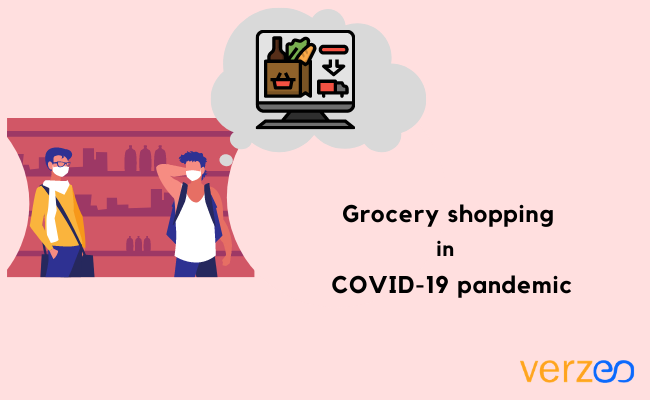Wegmans guided a self-checkout application at three stores preceding the pandemic, however, turned it out to 80 of its 103 stores this spring, as clients searched out contactless shopping.
The fast move to online basic food items requesting during the pandemic has introduced the following period of shopping for food. In any case, merchants are putting resources into innovation implied for stores, as well. They're propelling imaginative innovation inside physical areas, where the majority of buyers despite everything shop. Indeed, even Walmart's new enrollment program, Walmart+, will offer admittance to a tech-based advantage: a cell phone application that lets clients avoid the line at stores.
Prior to the pandemic, almost 98% of U.S. basic food item deals were in the stores, as indicated by McKinsey and Company. Indeed, even with the additions in the curbside pickup and home conveyance, 85% of deals were still in stores at the pinnacle of Covid-19, the firm found.
Numerous inheritance merchants have kept down on the rolling out or advancing ostentatious innovation. The speculations could be difficult to legitimize in a famously low-edge business — particularly when it's indistinct if clients will download cell phone applications or grasp development.
With the COVID pandemic, in any case, tech-based methodologies that advance security and speed are turning out to be table stakes for food merchants. Clients of the sum total of what ages have been more willing than before to download applications, evaluate administrations like curbside pickup, and search out approaches to evade collaborations with clerks or different clients.
Indeed, even before the pandemic, inheritance food merchants were getting pushed toward that path by a generally new opponent: Amazon. Known for its strength in online business, Amazon has been a little part of the staple space. It claims Whole Foods, and is the ninth biggest U.S. food merchant with 2.2% of the piece of the overall industry in 2019, as indicated by information from UBS.
Walmart is the biggest, with about 21% of the piece of the overall industry a year ago. It's trailed by Kroger, which had about 10%.
However even as a littler player, Amazon has been an eager one. It has quickly extended its physical staple impression to incorporate many cashier-less Amazon Go stores, another chain of Amazon Fresh markets, and several Whole Foods areas. It's stirred up the manners by which shoppers shop, pay for, and get their staple goods. The organization opened its first Whole Foods “dull store" during the pandemic to rapidly pick and pack online requests. It has helped convey goods to customers' vehicles called AmazonFresh Pickup. Also, most as of late, it has turned out brilliant shopping baskets, called Dash Carts, that consequently track a client's structure.
With the imaginative staple ideas, Amazon needs to please clients and eliminate torment focuses they would say — and at last, win more business.
Sucharita Kodali, a retail examiner for Forrester, be that as it may, said inheritance merchants have had valid justification to falter on making comparable ventures. She said some of them increment long haul costs and make more work for the retailer. That drives down their benefits.
That is the reason she's distrustful different merchants will consequently rip off every one of Amazon's augmentations, for example, it's brilliant staple trucks.
"They need to see an ROI first," she said. "It would simply be to stay aware of the Joneses."
Shoppers' changing inclinations during the COVID pandemic have given food merchants another motivation to test and now and again, take a page from the tech goliath's playbook.
Indeed, even as the pedestrian activity has gotten up stores once more, numerous customers' state wellbeing is as yet a top concern. Statistical surveying firm Ipsos surveyed 2,000 purchasers in June and discovered 62% of them would quit shopping at a retailer not paying attention to wellbeing and security.
That is quickened interest for advancements that can permit purchasers to shop securely in stores and cutoff connections with representatives or different clients.
For more such interesting blogs follow up on verzeo.com also check out the courses provided at Verzeo, learn here lead anywhere.

